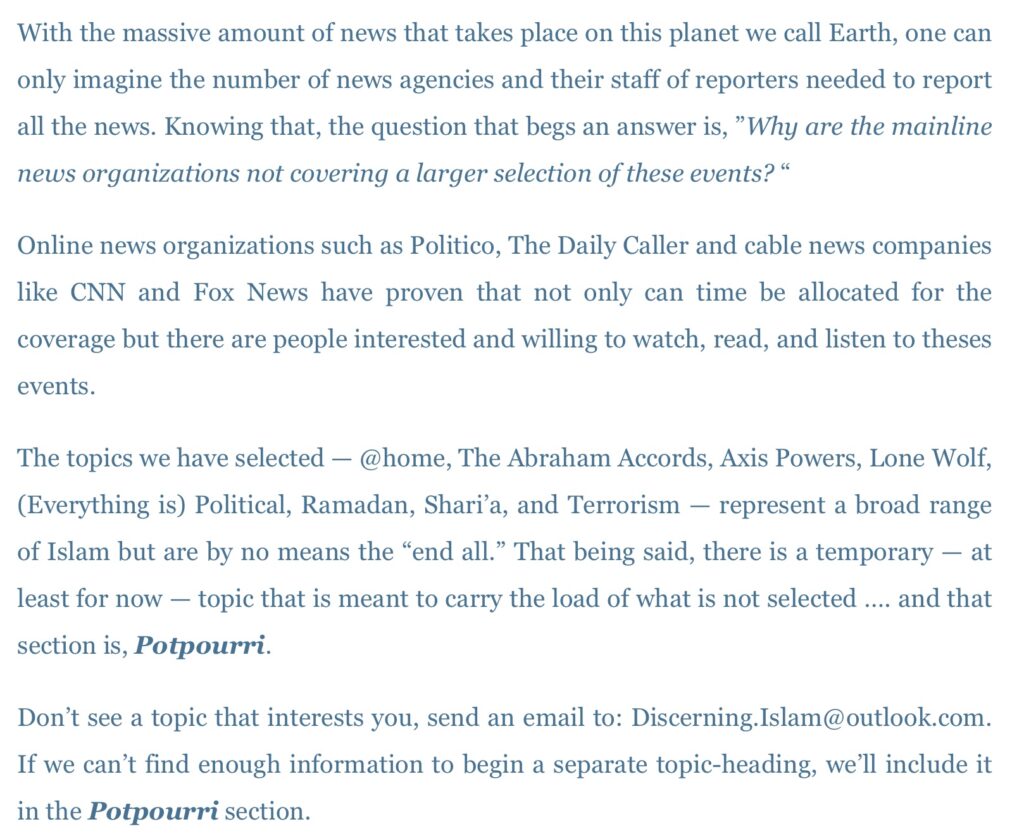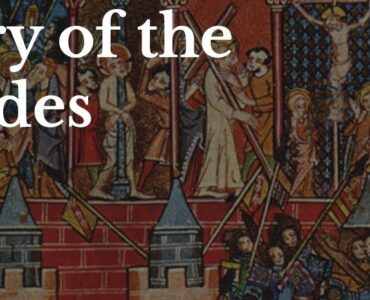


Over a period of time, several have asked what a typical day looks like for me. This seems like an appropriate time to respond to this question.
Over a course of 18 hours (my waking/working day) I receive somewhere between 250-300 emails. The sources for this come from over 125 entities …. other newsletters, websites, snail-mails, social media, etc. I try to make it a point to fact-check everything before putting it in a newsletter. To do this, I go to Google, Luxxle or other search-engines and will seek two corroborating entries. If I can’t corroborate it, I don’t use it. If it does check out, I will then label it and file it under one of the headings used as a newsletter topic.
Depending on the topic being covered, I will then add the various templates and set parameters for the topic. I’ve tried several approaches when it comes to distribution, and think I may have found one that works, with a newsletter being posted every two weeks. This seems to be ample time — until my wife gives me a list of things I need to do around the house!!!
Depending on the topic, I will go to the folder and start pulling out the selected items for use. To give you an idea, the following list ison file currently:
@home – 91 articles for selection;
The Abraham Accords – 19 articles;
The Axis Powers – 101 articles;
Lone Wolf – 138 articles
Political – 443 articles
Potpourri – 189
Ramadan – 4
Shari’a – 129
Terrorism – 184
TOTAL – 1,298 Articles
These are all articles in current/real time waiting for selection — 1,298 as of 4pm on September 26, 2023; why mark the date? Because it will change in fifteen minutes. After waiting to be reviewed and selected, it is time for verification. Once the verification takes place, and assuming they check out, it is time to place the content on the website. This is done on a page where the formatting takes place, but not yet published. The heading is placed; next comes posting any graphics — pictures, graphs, etc. Once it is all put together, formatted, etc., it goes to pre-publishing and one last proof-reading. The last step — notifications sent out.
Why Do They Want to Kill Us? ( Con’t)
Forgiveness and repentance …… as enacted by today’s jihadists. What follows is a source of Islamic terrorism — of those who want to kill us.
Religious Sources Of Islamic Terrorism
This fact has sparked a fundamental debate both in the West and within the Muslim world regarding the link between these acts and the teachings of Islam.
Most Western analysts are hesitant to identify such acts with the bona fide teachings of what many see as one of the world’s great religions and prefer to view them as a perversion of a religion that is allegedly peace-loving and tolerant. How could so many be so wrong — or, is there a fear about calling Islam to task? Until it is realized that Islam is a political and religious entity, attempting to mirror not just
Judaism and Christianity, but the religions of pre-Islamic Arabia as well, caught up in its own eschatology, we will continue to fight “radical Islam” on its own terms.
The underlying direction of Islam, from its inception to present day has been towards world domination: one religion, that of Islam; one people, Muslims; one law, Shari’a; one god, Allah; one leader, a caliph; one place of central power, a caliphate; and, where it all ends — Armageddon.
Islam is not a religion of peace. That perhaps has been the big lie throughout history. One need only look at Islam’s beginning, tracing its footsteps along the way, until reaching its declared final destination …… to realize that Islam is a religion of the Lessor JIHAD.
Western leaders such as George W. Bush and Tony Blair have reiterated time and again that the war against terrorism has nothing to do with Islam. It is a war against evil — only they failed to connect all the dots — that of knowing that the evil is rooted in the religion of Islam, itself.
The non-Islamic etiologies of this phenomenon include political causes (the Israeli-Arab conflict); cultural causes (rebellion against Western cultural colonialism); arid social causes (alienation, poverty). While no public figure in the West would deny the imperative of fighting the war against terrorism, it is equally politically correct to add the codicil that, for the war to be won, these (justified) grievances pertaining to the root causes of terrorism should be addressed. A skeptic may note that many societies can put claim to similar grievances but have not given birth to religious-based ideologies that justify no-holds-barred terrorism. Nevertheless, an interpretation which places the blame for terrorism on religious and cultural traits runs the risk of being branded as bigoted and/or Islamophobic.
The political motivation of the leaders of Islamist jihadist-type movements is not in doubt. A glance at the theaters where such movements flourished shows that most fed off their political — and usually military — encounter with the West. This was the case in India and in the Sudan in the nineteenth century and in Egypt and Palestine in the twentieth. The moral justification and levers of power for these movements, however, were for the most part not couched in political terms, but based on Islamic religious sources of authority and religious principles. By using these levers and appealing to deeply ingrained religious beliefs, the radical leaders succeed in motivating the Islamist terrorist, creating for him a social environment that provides approbation and a religious environment that provides moral and legal sanction for his actions. The success of radical Islamic organizations in the recruitment, posting, and ideological maintenance of sleeper activists (the 9-II terrorists are a prime example) without their defecting or succumbing to the lure of Western civilization proves the deep ideological nature of the phenomenon.
Therefore, to treat Islamic terrorism as the consequence of political and socioeconomic factors alone would not do justice to the significance of the religious culture in which this phenomenon is rooted and nurtured. In order to comprehend the motivation for these acts and to draw up an effective strategy for a war against terrorism, it is necessary to understand the religious-ideological factors — which are deeply embedded in Islam.
|
Remember…
MUSLIMS are not the problem.
… ISLAM is the problem.
PLEASE SHARE WITH A FRIEND OR FAMILY MEMBER
Help spread the truth about Islamic jihad
Sign up for e-letters by clicking here, or send your request to: discerning.islam@outlook.com

CLICK HERE TO MAKE A DONATION

https://discerning-Islam.org
See COPYRIGHT information below.



